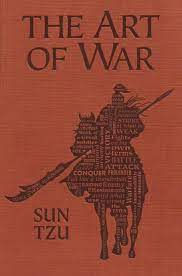Bridging the Gap: Building Stronger Police-Community Relations
- Haison Piggangay
- Jan 25, 2023
- 3 min read
Updated: Feb 15, 2023
Police community relations is an important aspect of ensuring the safety and security of communities, especially in areas affected by conflict and unrest. In far-flung areas where former communist rebels are present, the police need to engage in effective outreach programs that promote trust, understanding, and cooperation between the police and the local community. [1]
One of the key benefits of conducting monthly outreach programs in these areas is that it allows the police to engage with the community and build trust and understanding[2]. This can help to reduce the risk of conflict and unrest, and it can also help to foster a more positive relationship between the police and the local community. The outreach programs can also serve as a platform for the police to educate the community about their role and responsibilities and address any concerns or misunderstandings.
Additionally, conducting outreach programs in areas affected by former communist rebels can help promote community safety and security. By engaging with the local community and building trust and understanding, the police can work together with the community to identify potential security threats and take appropriate measures to address them. This can help to prevent the resurgence of conflict and unrest. However, there are also some potential challenges to conducting outreach programs in far-flung areas affected by former communist rebels. One of the main challenges is the perception of the police by community members. In places where conflict and unrest exist, there may be a lack of trust and understanding between the police and the local community. This can make it difficult for the police to effectively engage with the community and build trust and understanding.
Another challenge is ensuring the safety and security of the police officers involved in the outreach programs. In areas affected by former communist rebels, there may be a risk of violence and unrest, and the police need to take appropriate measures to ensure the safety of their officers. This may involve providing additional training and support or working with other organizations to provide security and support. To address these challenges and to effectively engage with the community in far-flung areas affected by former communist rebels, the police need to adopt a culturally sensitive approach. This may involve working with local community leaders and organizations and considering the local community's cultural beliefs, values, and practices. By being sensitive to the cultural context, the police can build stronger relationships with the community and promote greater understanding and cooperation between the police and the local community.
In addition, it is also important for the police to involve community members in the outreach programs and to provide opportunities for the community to voice their concerns and provide feedback. This can help to promote a sense of ownership and engagement among the community, and it can also help to ensure that the outreach programs are responsive to the needs and concerns of the local community. Furthermore, it is also important for the police to work with other organizations and stakeholders to support the outreach programs. For example, the police can work with religious leaders, community-based organizations, and other government agencies to provide additional support and resources for outreach programs. This can help to increase the impact of the outreach programs, and it can also help to promote a more coordinated and effective response to the needs and concerns of the local community.
IN PHOTOS: PNPA Cadets joined the Outreach activity of Baguio City Police Office, CMFC led by PLT JUN P TAD-O to share small gifts to the community. In this activity, we were able to engage with the community in partnership with Pastor Elmer Collado, founder of Jesus is Our Savior Ministry. The small gifts that were brought gave smiles to the local community. They were jokingly saying that these clothes would be their uniform while doing their livelihood activities.



References:
1. EO 70 "Institutionalizing the Whole-of-Nation Approach in Attaining Inclusive and Sustainable Peace, Creating a National Task Force to End Local Communist Armed Conflict, and Directing the Adoption of a National Peace Framework"
2. PNP Memorandum Circular (MC No. 2019-046 Police Community Affairs and Development Master Plar "Tagataguyod”





Comments